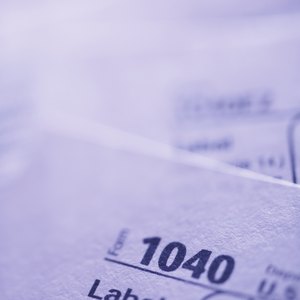
The worry over taxes is mostly attributable to whether you may owe money, but for many, it is the management of so much paper and information. You receive documents from various sources that are to be used in filling out your taxes, and each report different items. W-2 forms are an important part of filing your income taxes as they serve as reports of your income.
What is a W-2?
A Form W-2, Wage and Tax Statement, is a report by an employer to the IRS that discloses the amount of income earned by an individual as well as the federal, state and payroll taxes paid. In addition to income earned in cash and non-cash payments, the W-2 reports the amount of contributions to pension plans and other deferred income.
What is Non-Taxable Income?
Non-taxable income is income exempted from taxes due to a statutory exception. Non-taxable income from your employer would be given in the form of welfare benefits. You may receive other limited non-taxable income from your employer, such as certain meals and lodging. However, in order to be non-taxable, the meals and lodging benefits must be given solely for the convenience of your employer. An example of this non-taxable benefit would be working for a company where you were not permitted to leave the premises for a business reason like security, so meals are provided by the employer on the work premises. Most non-taxable income, however, would not come from your employer. You would receive it as a gift, bequest or child support payments.
Should Non-Taxable Income Show on Your W-2?
Your W-2 contains information about the cost of your health care coverage under an employer-sponsored group health plan. This is non-taxable income, but under a new rule, it must be reported on your W-2. This includes not only the cost of employer-provided health insurance but employer contributions to health savings accounts as well. Your W-2 will also include non-taxable elective deferrals or contributions to retirement plans or any nontaxable combat pay from a military employer.
Other W-2 Information
Your employer should send your W-2 to you by Jan. 31. You will receive several copies of your W-2, so that you can include a copy when you file your state and federal taxes. Your employer will also send a copy of your W-2 directly to the IRS.
References
Writer Bio
Kay Lee began freelance writing for Answerbag and eHow in 2010. She is an attorney in Washington, DC, practicing since 2006. Lee specializes in employee benefits and executive compensation. She holds a Juris Doctor from the Columbus School of Law and a Master of Laws from Georgetown University Law Center.

